JBM Electric Vehicles Unveils Four New E-buses
- By MT Bureau
- January 18, 2025
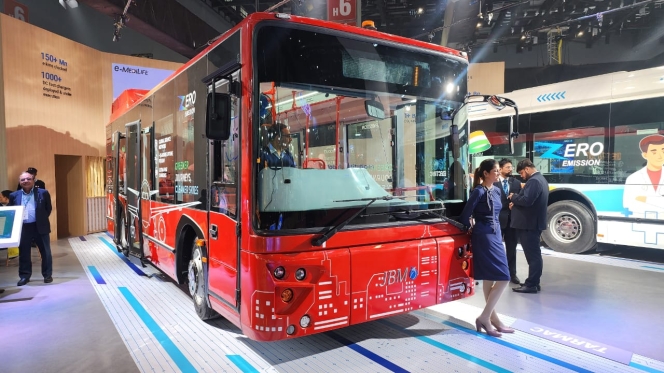
JBM Electric Vehicles showcased four new electric buses at the Bharat Mobility Global Expo 2025. These include the all-new electric luxury coach named Galaxy, the intercity bus called Xpress, a low-floor electric medical mobile unit called e-MediLife and the 9-metre electric tarmac coach called e-SkyLife. The buses were unveiled by Union Minister for Road Transport & Highways Nitin Jairam Gadkari alongside JBM Group Chairman S.K. Arya and others.
The company also showcased JBM E-Verse, an indigenously designed EV ecosystem. It encompasses in-house capabilities in fast charging infrastructure, efficient lithium-ion batteries, power infrastructure and a network that ensures zero downtime. The E-Verse demonstrates the company's commitment to providing end-to-end e-mobility solutions, designed in India for the world. The newly launched electric buses showcase cutting-edge technology, unmatched comfort and safety, and a steadfast commitment to environmental sustainability. In addition, these buses are designed to offer best-in-class total cost of ownership, providing customised solutions to meet diverse needs.
Currently, JBM has deployed over 1,800 electric buses across multiple geographies in India, Europe, the Middle East and Africa. The company has a robust order book of over 10,000 electric buses deployed and under execution. JBM has also set up the world’s largest (outside China) dedicated integrated electric bus manufacturing facility, located in the Delhi-NCR region with an annual production capacity of 20,000 electric buses.
The newly launched electric buses are meticulously designed to provide enhanced safety features, meeting the highest standards through rigorous side-impact and rollover testing. Advanced systems like EBS and ABS, combined with disc brakes, deliver exceptional road control and stability. ADAS (optional) offers unparalleled safety. The battery management system is designed to maintain thermal control, while Automatic Vehicle Location (AVL), surveillance cameras, and Vehicle Tracking Systems (VTS) provide comprehensive supervision and management of the buses. A high-temperature cut-off mechanism for the battery, along with a Fire Detection and Suppression System (FDSS), adds an additional layer of protection. Emergency exit doors and roof hatches are incorporated for uncompromised safety in critical situations. Features such as hill-hold assist, panic buttons, and larger glass panels eliminating blind zones further enhance driver and passenger security.
Speaking at the occasion, JBM Group Vice Chairman Nishant Arya said, "At JBM Electric Vehicles, we believe that the future of green mobility lies in creating vehicles that seamlessly blend innovation, sustainability and user-centric design. Our electric mobility solutions are not just about reducing carbon footprints— they are about elevating the quality of life for individuals and communities by making transportation smarter, safer, and more accessible. As we showcase our latest electric bus fleet at Bharat Mobility Global Expo 2025, we are excited to present vehicles that address diverse mobility needs, from luxury inter-city travel to doorstep healthcare services and greener tarmac transport services. These innovations underline our unwavering commitment to shaping a cleaner and more connected future for public transportation."
Gulf Oil Lubricants Inks Strategic Partnerships With ACE, Ammann India And XCMG
- By MT Bureau
- January 19, 2026
Gulf Oil Lubricants India has established strategic alliances with three construction equipment manufacturers – ACE (Action Construction Equipment), Ammann India and XCMG. These agreements are intended to expand the company’s presence in the infrastructure segment by providing equipment-specific lubricants for the Indian market.
As part of the collaboration with ACE, Gulf has added new products to the ACE Genuine Oil range, covering machinery such as cranes, backhoe loaders, motor graders and tractors. For Ammann India, which holds a 60 percent market share in asphalt mixing plants, Gulf will serve as the official partner for its entire equipment range. This includes the development of formulations for future machinery. Additionally, Gulf will launch branded lubricants for XCMG to support its range of construction equipment within India.
Alongside these alliances, Gulf has introduced a range of specialised products including fire-resistant hydraulic oil, zinc-free hydraulic oil and CEV V diesel engine oil. These formulations are engineered to meet the requirements of new-generation equipment while improving uptime and reducing the total cost of ownership for contractors.
The company currently manages over 50 OEM associations across the automotive, industrial, and construction sectors. These partnerships are a component of Gulf’s strategy to provide technical services and product selection tailored to Indian operating environments.
Ravi Chawla, Managing Director & CEO, Gulf Oil Lubricants India, said, “Infrastructure has been a strategic focus area for Gulf for over 15 years, and these partnerships mark a significant step forward in strengthening our presence in this growing sector. By working closely with leading OEMs like ACE, Ammann, and XCMG, among others, we are able to deliver application-specific, future-ready lubricant solutions for new generation equipments that help customers improve equipment reliability, reduce downtime, and optimise total cost of ownership. We firmly believe that long-term value is built through strong, enduring partnerships.”
MAN Truck & Bus Plots EUR 1 Billion Investment In Germany By 2030
- By MT Bureau
- January 17, 2026
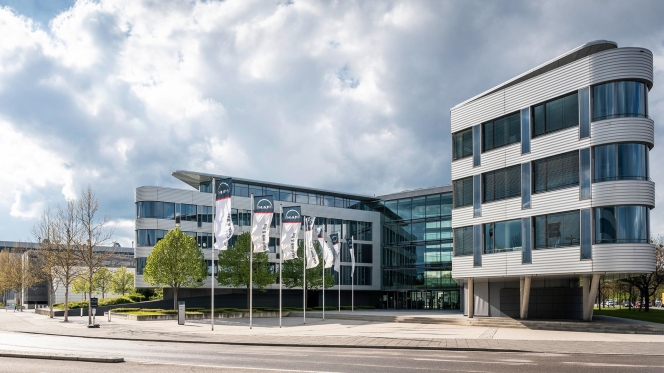
German commercial vehicle major MAN Truck & Bus has reached an agreement with employee representatives and the IG Metall union on its MAN2030+ programme. The initiative is designed to reduce costs by approximately EUR 900 million by 2028 while funding investments of almost EUR 1 billion in the company’s German locations by 2030.
The programme includes the development of vehicle generations based on the TRATON Modular System (TMS). Production and R&D investments will be made in Germany and Eastern Europe, where the group plans to establish a battery factory to support the transition to electric heavy-goods vehicles and buses.
The agreement secures the jobs of employees at MAN Truck & Bus in Germany until at least 2035, with a potential extension to 2040 based on sales and earnings performance. All German production sites will be retained. The company plans to adjust its workforce by 2,300 jobs over the next decade through natural fluctuation and demographic trends, avoiding redundancies or severance schemes.
Alexander Vlaskamp, CEO, MAN, said, “Following intensive negotiations, we have now reached agreement with our employee representatives on the implementation of key cornerstones of the MAN2030+ program. The plan secures MAN’s competitiveness and guarantees our customers a broad product portfolio as a full liner, which forms the basis for the company’s future success. This will enable us to secure the jobs of our current employees also in the future. With our continued high level of investment in Germany, we are fulfilling our industrial policy responsibilities. We will now consistently implement the long-term MAN2030+ program in order to counteract intensifying competition, changing market conditions and major regulatory risks at an early stage."
The EUR 900 million cost reduction will be achieved through savings in material and overhead costs, as well as sales performance improvements. The company has ruled out wage cuts and committed to continuing profit-sharing payments and above-tariff benefits.
Karina Schnur, Chairwoman of the General Works Council, MAN Truck & Bus, said, “The discussions were not easy, but they were always respectful and constructive, and from the perspective of co-determination and IG Metall, they have now resulted in the best possible compromise for our employees and the company. The agreement sends a very strong signal regarding the security, stability, and future prospects of our employees. With this agreement, we are securing the jobs of our colleagues at MAN until at least the end of 2035. And we are doing so without interfering with collectively agreed benefits. In addition, we were able to agree on profit sharing for employees and the payment of benefits above the collective agreement level – which means that MAN will remain an attractive company for future generations. Furthermore, we are securing the long-term preservation of our German locations. At the same time, we are creating the freedom to continue investing significantly in our German locations and the future of MAN.”
The programme also prioritises vocational training, with MAN committing to hire trainees amounting to at least 2 percent of the permanent workforce annually. By the mid-2030s, the company expects to employ approximately 13,000 staff across its German operations.
Volvo–Eicher Establishes Regional Competency Development Centre At VNR VJIET
- By MT Bureau
- January 13, 2026
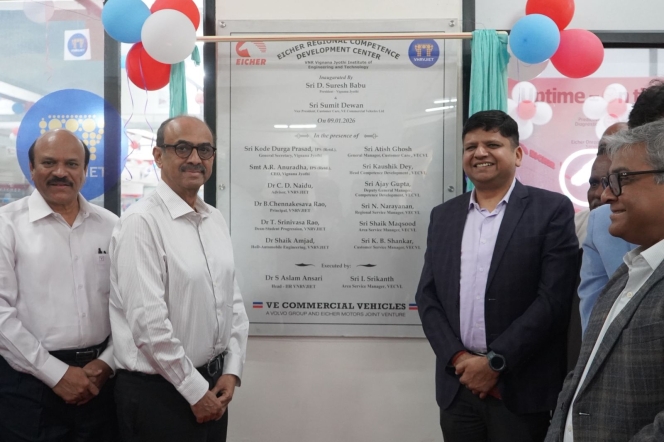
In a strategic commitment to cultivating advanced technical expertise in South India, Eicher (VE Commercial Vehicles Limited) has established a long-term Regional Competency Development Centre at VNR Vignana Jyothi Institute of Engineering & Technology (VNR VJIET) in Hyderabad. This significant investment underscores Eicher's dedication to fostering industry-ready talent and enhancing the practical skills of its own workforce and network. The centre, inaugurated for an initial 10-year term, represents a core component of Eicher's vision for collaborative innovation and sustainable skill development within the automotive sector.
The newly inaugurated facility is equipped with a comprehensive range of operational vehicles, including diesel and electric models, alongside specialised diagnostic equipment and cut models of vital automotive systems. This infrastructure is designed to provide immersive, hands-on learning for Eicher employees and dealer partners from the Telangana and Andhra Pradesh regions. Furthermore, it creates a vital bridge to academia, offering students and faculty from key engineering disciplines direct exposure to current industry technologies and real-world automotive systems within their academic environment.
This initiative is fundamentally driven by Eicher’s objective to support sustained knowledge advancement and create a robust pipeline of skilled professionals. By enabling structured training on modern vehicle technologies, the partnership actively contributes to shaping the future of the automotive industry. It reflects Eicher's proactive approach to integrating industry practice with engineering education, thereby strengthening the ecosystem that supplies the next generation of engineers and technicians.
D Suresh Babu Garu, President, Vignana Jyothi, said, “Being selected by a global automotive leader such as Volvo–Eicher to host a Regional Competency Development Centre is a strong validation of VNR VJIET’s focus on industry-aligned education. This collaboration strengthens our commitment to providing students with the best facilities, real-world exposure and future-ready skills that meet national and global standards.”
Sumit Diwan, National Head – Customer Care, VE Commercial Vehicles Limited, said, “This Centre reflects our long-term approach to capability building and talent development. By investing in advanced infrastructure at VNR VJIET and training students alongside our workforce, we are creating a strong pipeline of skilled engineers equipped for evolving automotive and electric mobility technologies. We plan on hiring students from Automobile Engineering (AE) department and encourage greater participation of female students in the recruitment process.”
BillionE Mobility Secures USD 25 Million To Expand Electric Trucking Fleet
- By MT Bureau
- January 13, 2026
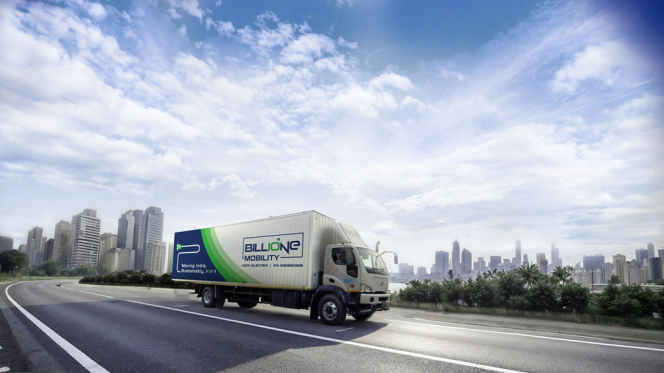
BillionElectric Mobility (BillionE) has raised USD 25 million in a growth capital round consisting of equity and debt. The funding was provided by a consortium of family offices, ultra-high-net-worth individuals and financial institutions, including the State Bank of India (SBI).
The capital is intended to transition the company from deployments to commercial operations in electric freight. A portion of the funds will support the rollout of 500 electric trucks during the FY2026-27.
BillionE Mobility currently maintains a pipeline of over 1,500 electric trucks planned for the next three years to meet demand from industrial customers.
The fleet will serve logistics for sectors including cement, automotive, metals, and e-commerce. These industries are targeted due to predictable routes and high utilisation levels, which facilitate the transition to electric vehicles.
BillionE Mobility is executing a strategy across freight corridors. These routes are being electrified by CHARGE ZONE, an affiliated company providing the charging network for the fleet. The integration aims to deliver operational efficiencies and reductions in emissions across industrial clusters.
Sanjeev Kulkarni, CEO and Co-Founder, BillionE Mobility, said, “This fundraise comes at a defining moment for electric commercial mobility in India. We are moving beyond pilots to scaled, real-world deployments where execution, reliability, and economics matter most. The capital will allow us to accelerate fleet expansion, strengthen operational readiness, and deepen partnerships with customers committed to decarbonising their logistics. Our vision is to make electric trucking a mainstream, dependable, and commercially viable choice for India’s freight ecosystem.”
Kartikey Hariyani, Founder and Chief Platform Architect of BillionE Platform, added, “I am personally indebted and grateful to our existing and new shareholders backing our vision of an Energy Transition platform enabled by electric mobility in commercial segments. Currently we are on a growth path of 120 percent on YoY basis and would like to maintain this momentum in coming months and years. Fortunately, EV trucking has achieved the total cost of ownership (TCO) at par with diesel on specific routes and use cases, especially 19T and 55T category, and this is indeed a huge boost.”
The company intends to use the investment to capture a share of the commercial vehicle market while lowering carbon intensity in freight logistics.



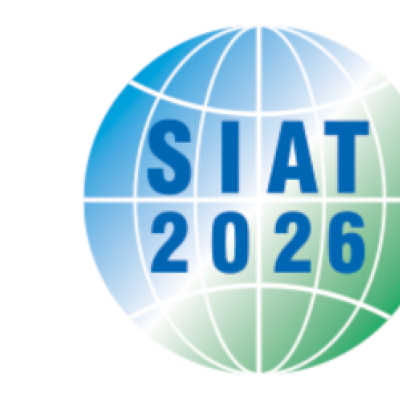



Comments (0)
ADD COMMENT